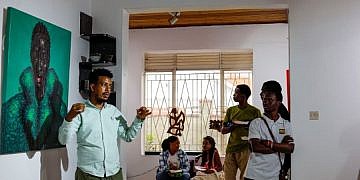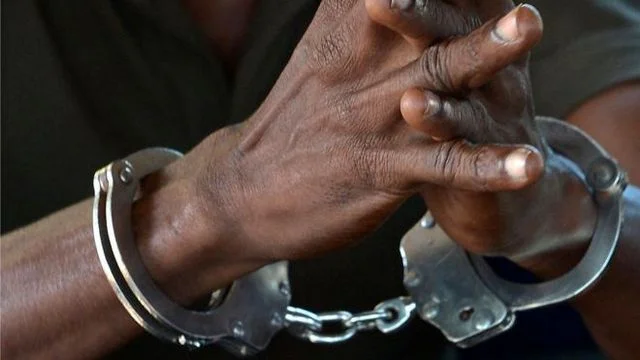What seemed as a show of boldness intended to impress followers on social media but to also intimidate authorities has gone sour, after a TikToker was arrested for bragging over illegal power connection.
In a video making rounds on social media, a TikToker was captured saying that while his business had been disconnected by UEDCL , he would re-connect it.
“You thought by disconnecting us we would die! We have another solido that we are going to reconnect ourselves. If all fails, we will connect ourselves to poo power( bio gas) so that you also count losses,” the TikToker said.
Addressing journalists on Monday, Electricity Regulatory Authority’s corporate planning and consumer affairs officer , Ibrahim Kasita said following the release of the TikTok video, police, ERA and UEDCL went to work, arresting Briton Sythn Kasule, a 28 year old resident of Busega.
“He openly bragged about illicitly reconnecting electricity using previously disconnected supply wires (“solido”) and incited members of the public to engage in similar illegal activities whenever disconnection occurred. He also encouraged tampering with electricity infrastructure in defiance of enforcement measures to protect the infrastructure,” Kasita said.
He said Kasule who is currently under police detention will be charged with unauthorized reconnection and tampering of meters and supply wires (solido) which is an offence under Section 88 of the Electricity Act, and on conviction may be liable to 12 years imprisonment;
“He is also accused of theft of electricity via illegal connections is an offence under Section 90 of the Electricity Act, liable to 10 years imprisonment,” he said.
Kasita warned that any person found guilty of this offence, will on conviction, have to pay up to 20 times the cost of the stolen/estimated cost of stolen electricity.
He noted that working on electrical installations without an installation permit issued by the Installations Permits Committee of the Electricity Regulatory Authority is also an offence and the culprit may be liable to 2 years imprisonment.
“This conduct is not only an offence, but exposes citizens to electrocution hazards, compromises reliable service delivery, and results in substantial losses across the electricity sector value chain.”







































